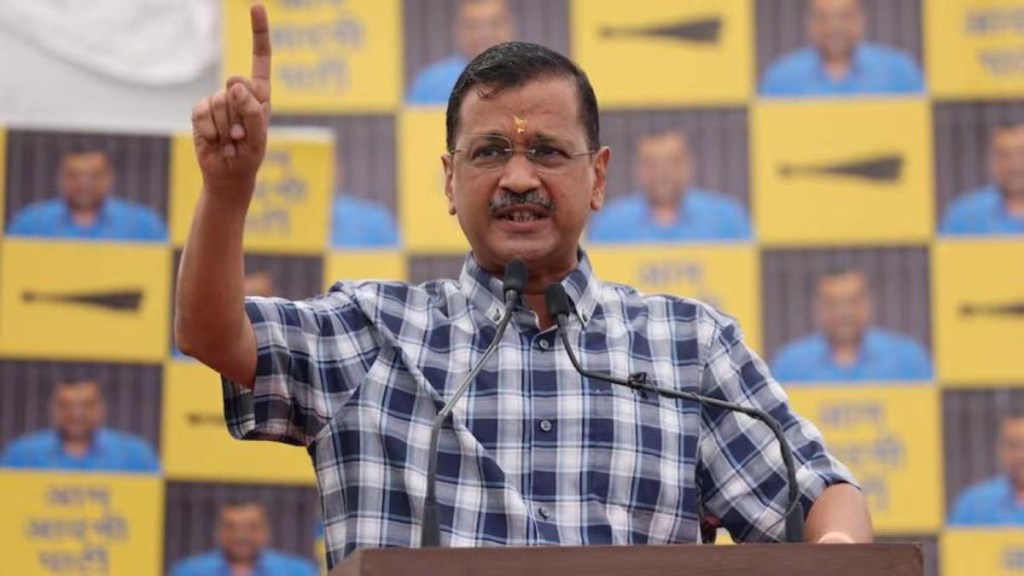In a setback for Delhi Chief Minister Arvind Kejriwal, the Delhi High Court on Tuesday allowed the Enforcement Directorate’s (ED) plea to stay the trial court’s bail order for the Aam Aadmi Party (AAP) chief in the money laundering case linked to the alleged excise policy scam.
The bench of Justice Sudhir Kumar Jain stayed the bail order granted by the trial court to Arvind Kejriwal on June 20. The bench had reserved the order on June 21 after the agency challenged the trial court’s decision, which has now been put on hold pending the ruling.
Also Read:Kejriwal to remain in jail as Delhi High Court stays trial court order granting bail to CM in excise policy case
The High Court noted in its observations that the vacation judge did not appropriately address the averments made by the Enforcement Directorate in regard to Sections 45 and 70 of the Prevention of Money Laundering Act in its impugned order.
According to Section 45 of the PMLA, bail can be granted to an accused in a money laundering case only if twin conditions are satisfied – there should be prima facie satisfaction that the accused has not committed the offence and that he is not likely to commit any offence while on bail.
Also Read:Delhi Court grants bail to CM Arvind Kejriwal in liquor policy case
Section 70 of the PMLA, 2002, states that if a company commits a contravention of any provision of the Act, every person who was in charge of the company’s business at the time of the contravention is also liable.
Meanwhile, the court has already scheduled the main matter for July, where the ED has challenged the trial court’s order granting regular bail to Arvind Kejriwal in the case.
Also Read:Delhi excise policy case: Kejriwal’s judicial custody extended till July 3
The Enforcement Directorate (ED) has filed written submissions before the Delhi High Court opposing any relief for Delhi Chief Minister Arvind Kejriwal in the Excise Policy money laundering case.
The ED objected to the trial court’s decision to grant bail to Kejriwal, describing it as illegal and flawed. According to ED, the trial court’s order should be suspended and overturned because the vacation judge allegedly made biased findings on both factual and legal aspects without examining the prosecution’s evidence.
Additionally, the investigative agency claimed that new evidence gathered against Arvind Kejriwal after 2023, including statements from 13 Angariyas, AAP workers from Goa, and AAP office-bearers, was not considered by the vacation judge.
“Denial of ample opportunity to the Enforcement Directorate is a violation of one of the conditions of Section 45,” said the ED to the Delhi High Court.
Meanwhile, the Supreme Court postponed Arvind Kejriwal’s plea challenging the Delhi High Court’s interim bail stay in the Delhi excise policy case, which is being investigated by the ED, to June 26.
A bench comprising Justices Manoj Misra and SVN Bhatti noted that the High Court’s decision to grant interim bail stay to Kejriwal without issuing a final order was unusual.
“In cases involving stay orders, decisions are typically made on the spot rather than being reserved. What has occurred here is unusual. We will hear the matter the day after,” the bench remarked.
On June 21, the High Court had granted an interim stay on Kejriwal’s bail while reserving its final decision, instructing both parties to submit written arguments by Monday.
Subsequently, Kejriwal filed an appeal in the Supreme Court against the High Court’s order.
Earlier, on June 20, the trial court had granted bail to Kejriwal in the money laundering case. The following day, the ED urgently petitioned the High Court challenging this bail order. After extensive hearings, the High Court reserved its decision on the ED’s request to stay Kejriwal’s release pending the final order.
